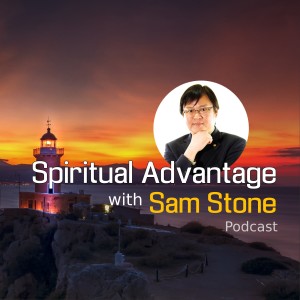
Last week, I talked about how ultimate happiness comes from meaning. If you find meaning in life, you have happiness. The meaning of life comes from usefulness. So, when you make yourself useful, you find life meaningful, and you harvest the fruit of joy and happiness.
Some of us may be thinking, “I’m getting old and useless.” It’s not true. Usefulness can be both active and passive. If you are young and strong, you can be actively useful. If you are old and feeble, you can be passively useful—such as praying frequently for the church, family, community, and the world. The power of prayer is highly underrated.
So, don’t be discouraged by diminishing physical ability. There are many creative ways to serve.
A more important question is, who would you rather serve? It reminds me of a thought-provoking story told by Zhuangzi, the great philosopher.
Zhuangzi and his disciples traveled through a forested hill and passed by a huge tree. He was surprised to see the loggers ignore such a majestic tree. So, he asked a logger why they did not cut this beefy tree down and made a lot of money. They told him that the tree was useless. You couldn’t make anything out of it. No carpenter or builder would buy it.
Zhuangzi remarked to his students, “This is the value of uselessness. People only understand the value of usefulness but not the value of uselessness. See, just because it’s useless, this tree gets to live to the full extent of its life.” His disciples took note of that observation.
They stopped to visit a friend on the other side of the hill. As a lifelong admirer, the host family welcomed the sage warmly and enthusiastically asked them to stay for dinner. Immediately, the host asked the servant boy to kill a goose to treat the guests.
The boy asked, “Sir, which one should I kill—the one that honks or doesn’t.” (In case you don’t know, just like dogs, house geese can guard the property by honking when strangers or thieves approach. Like dogs, they even attack suspicious strangers.) The host said, “Kill the one that doesn’t honk.”
The smart students of Zhuangzi heard it and noticed it contradicted what their master had taught them on the way. The next day, the disciples challenged their master, “Master, you told us back on the hill that the tree gets to live long because it’s useless, but why then did the useless goose get killed?”
Zhuangzi said he didn’t say uselessness is always good. You need to know the situation. There are times you better be useless and times you better be useful. Then, he gave them a long lecture on knowing when, where, and how to be useful and useless and, most importantly, how to be useful for a higher purpose.
This story stimulates a self-searching on who you want to be useful to. Do you want to be a useful employee to be exploited by a cunning company—like a useful tree getting chopped off by the loggers? Or do you want to be a good steward, guarding a good owner’s property like the honking goose? Who do you want to serve?
When our son asked me what I thought about him joining the army years ago, I told him if you wanted to be a soldier, it would be a great honor to serve a country like the U.S.
On the contrary, you would rather be useless if you live in a totalitarian nation that goes to war for vanity, exploiting its soldiers. We have two major wars going on right now. If you were in any of those countries, would you rather be useful or useless?
We are born to be useful. When we are young, we seek to be useful to our parents, siblings, friends, and teachers. As we grow older, we seek to be useful to society by pursuing a meaningful career. As we grow more mature, we want to be useful for a greater purpose, such as to be useful to God and fulfill a divine dream, because that gives us the ultimate joy and happiness.
Confucious said people discover their divine purpose when they are 50. I think it’s sad that we have to live half of our lives before we discover our divine purpose.
But there are instances in the Bible where people discovered their calling when they were young. For example, Joseph in the Old Testament knew his divine dream since he was seventeen. Mary received her divine calling when she was only about fifteen. Jesus wants us to seek our divine purpose as our top priority. He said,
“Seek first the kingdom of God and his righteousness, and all these things will be added to you.” (Mt 6:33).
Everything falls together when you do this one thing. If being useful to God gives you the greatest meaning and highest joy in life, how do we become useful to God?
Since it’s Advent season, we can explore this question by looking at Mary, who made herself available to God to carry “God in human form” to earth as a baby and accompany him all the way to the cross and become the greatest woman in human history. So, let’s begin!
No comments yet. Be the first to say something!